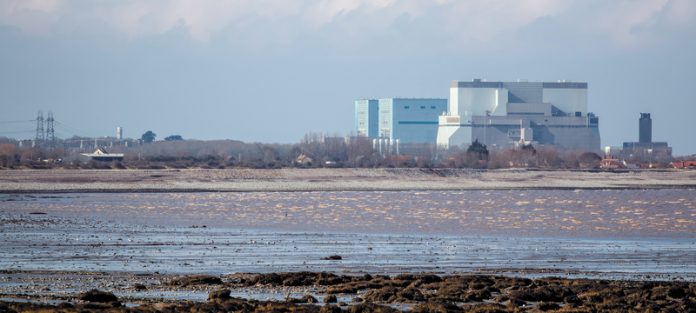Oliver Johnson, Policy Executive at Association for Consultancy and Engineering questions whether the decision to postpone approval for Hinkley Point C was the right decision…
The decision to postpone approval for Hinkley Point C taken by the government last week is not a stabilising one. British hesitance on the matter seems to contradict assertions that the country remains ‘open for business’ despite leaving the European Union. However, there are reasons to be positive about the new government’s likely approach to infrastructure in general and an early nuclear hiccough should not result in foreign investor panic – yet.
In an article written before the Brexit referendum, ACE’s Chief Executive Officer, Nelson Ogunshakin suggested that infrastructure decisions shape the way the outside world perceives us. He pointed out specifically that initiatives in our energy sector, such as Hinkley Point C, have instrumental and symbolic benefits in equal measure. His conclusion was that the decisions we make on power generating infrastructure build our national identity, not just our energy security.
If committing to projects such as Hinkley Point C gave the UK ‘an opportunity to embrace our stated values of openness and internationalism’, as Ogunshakin said previously, what does apparent reluctance towards fulfilling such commitments symbolise? If whole-heartedly (and perhaps uncritically) launching ourselves into these projects sent one message, then May government’s approach is beginning to articulate a slightly different side of the British psyche that has its own strengths.
The decision on whether or not to go ahead with the reactor had been yo-yoing for quite some time. Hinkley’s construction would have involved the cooperation of the British, French and Chinese governments, with the only barrier supposedly remaining being the formal sign off from the French government backed energy giant EDF. In the context of protest by unions, a CFO resigning over the project and serious concern from shareholders, EDF decided to take a risk and push on with the project. Then, having emerged from the meeting triumphant, EDF’s executives had their faithful investment in Britain dashed by a government press release signalling a decision in the early autumn.
Although the Hinkley delay is a disappointment, we should not make a pessimistic mountain of a frustrating – albeit nuclear – molehill. First, it is important to understand this decision (or the postponing of a decision) in its context. Hinkley Point has taken over a decade to get this far – in 2007, Vincent de Rivas, then EDF’s top man in the UK said that Christmas turkeys would be roasted in ovens powered by Hinkley as soon as 2017.
By contrast, the current government has been in power for under a month. It could be argued that an expectation for the government to push ahead with an £18 billion project even before ministers’ feet are comfortably under desks is somewhat unreasonable.
Second, the government is systemically building institutions that should be capable of making these kinds of decisions more efficiently and effectively. This change in focus is marked by the inception of a new Department for Business, Energy and Industrial Strategy, as well as a cabinet committee focused on industrial strategy that will be attended by 10 secretaries of state. Indeed, the previous government set up the National Infrastructure Commission, which will independently audit existing assets and recommend improvements over the long term. Clearly the government is pushing an emphasis on ‘industrial strategy’, as well as infrastructure provision as a part of that strategy.
Most notably, the measures above seem to eclipse the previous government’s rhetorical commitment to a ‘long-term economic plan’, characterised in large part by an unwavering vow that government must target a surplus in budgets instead of running a deficit. This policy culminated in a strengthening of the ‘fiscal charter’ to make what was previously a principle into a legal requirement.
However, the new Chancellor has hinted that the Autumn Statement will reveal a loosening of government purse string and that an increase in the budget deficit to pay for infrastructure improvements would be acceptable. The majority of commentators characterised the fiscal charter as both a public relations master stroke and an irresponsible economic straightjacket. Though it is difficult to know how the change will register with the public, the recent change in direction will likely make for more comfortable economic garb.
Finally, more than simply a general interest in ‘spending more’, the government does seem to be honouring most of the specific projects that the previous administration was committed to. An important first test came in late June, when the government needed to pass the recommendations made by the Committee on Climate Change’s fifth carbon budget, which it did without protest. Ministers with portfolios directly tied to infrastructure programmes have been maintained – with one minister, Andrew Percy of the Department of Communities and Local Government, even having ‘Northern Powerhouse’ in his job title. Continuing assurance on HS2 is also encouraging.
In sum, despite the temptation to see the Hinkley indecision as indicative of a Britain closed for business, the correct interpretation of recent events is that of a considered and hard-headed government unwilling to be shackled by previous government decrees but keen to give certainty where possible.
Perhaps this new vision of Britain is not one of assumed foreign investment and openness by default, but one characterised by stability and a confidently pragmatic core.
Oliver Johnson
Policy Executive
Association for Consultancy and Engineering











